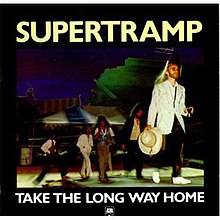
Supertramp were a British rock band that formed in London in 1970. They experienced their greatest global success in 1979 with their sixth album Breakfast in America. Marked by the individual songwriting of founders Roger Hodgson and Rick Davies, the group were distinguished for blending progressive rock and pop styles as well as for a sound that relied heavily on Wurlitzer electric piano. The group's lineup changed numerous times throughout their career, with Davies being the only constant member throughout its history. The classic lineup, which lasted ten years from 1973 to 1983, comprised Davies, Hodgson, Dougie Thomson (bass), Bob Siebenberg (drums) and John Helliwell (saxophone).

Breakfast in America is the sixth studio album by the English rock band Supertramp, released by A&M Records on 16 March 1979. It was recorded in 1978 at The Village Recorder in Los Angeles. It spawned three US Billboard hit singles: "The Logical Song", "Goodbye Stranger", and "Take the Long Way Home". In the UK, "The Logical Song" and the title track were both top 10 hits, the only two the group had in their native country.

Crime of the Century is the third studio album by the English rock band Supertramp, released in October 1974 on A&M Records. Crime of the Century was Supertramp's commercial breakthrough in many countries, most notably in the UK, Canada and Germany where it peaked in the Top 5 while also making the Top 20 in Australia and France. It was an improvement over their previous sales in the US, but still only peaked at No. 38, with the US hit being "Bloody Well Right". "School" was another popular track, particularly at album rock-oriented radio stations. The album was eventually certified Gold in the US in 1977 after the release of Even in the Quietest Moments.... In Canada, it was eventually certified Diamond. The album was Supertramp's first to feature drummer Bob Siebenberg, saxophone and clarinet player and vocalist John Helliwell, bassist Dougie Thomson, and co-producer Ken Scott. The album has received critical acclaim, including its inclusion in Rolling Stone's "50 Greatest Prog Rock Albums of All Time".

Crisis? What Crisis? is the fourth album by the English rock band Supertramp, released in 1975. It was recorded in Los Angeles and London – Supertramp's first album to have recording done in the US.

Even in the Quietest Moments... is the fifth album by the English rock band Supertramp, released in April 1977. It was recorded mainly at Caribou Ranch Studios in Colorado with overdubs, vocals, and mixing completed at the Record Plant in Los Angeles. This was Supertramp's first album to use engineer Peter Henderson, who would work with the band for their next three albums as well.
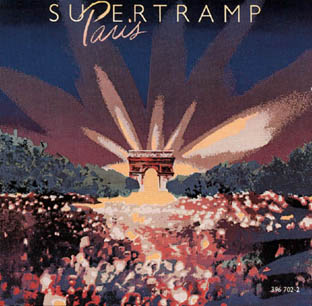
Paris is a live album by the English rock band Supertramp, released in 1980. It was recorded on Supertramp's Breakfast in America tour in Paris, France, with most of the tracks taken from a 29 November 1979 show at the Pavillon de Paris, a venue which was once a slaughterhouse. The album was originally going to be called Roadworks. Paris reached number 8 on the Billboard 200 in late 1980 and went Gold immediately, while the live version of "Dreamer" hit the US Top 20.

...Famous Last Words... is the seventh studio album by English rock band Supertramp, released in October 1982. It was the studio follow-up to 1979's Breakfast in America and the last album with vocalist/keyboardist/guitarist Roger Hodgson, who left the group to pursue a solo career. Thus, it was the final album to be released by the classic lineup of the band.
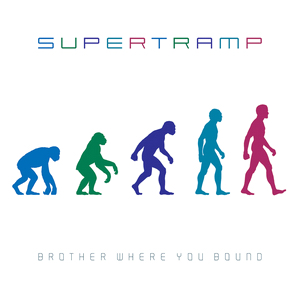
Brother Where You Bound is the eighth studio album by the English rock band Supertramp, released in 1985. It was their first album after original member Roger Hodgson left the band, leaving Rick Davies to handle the songwriting and singing on his own. The album features the group's Top 30 hit "Cannonball".
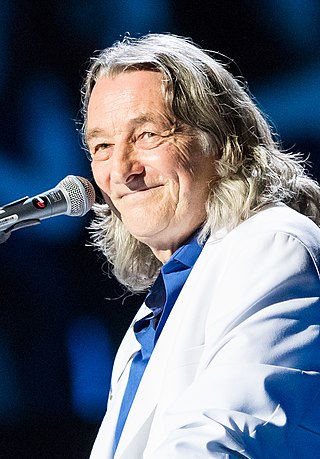
Charles Roger Pomfret Hodgson is an English singer, musician and songwriter, best known as the former co-frontman and founding member of the progressive rock band Supertramp. Hodgson composed and sang the majority of the band’s hits, including "Dreamer", "Give a Little Bit", "Take the Long Way Home", "The Logical Song", "It's Raining Again", and "Breakfast in America".
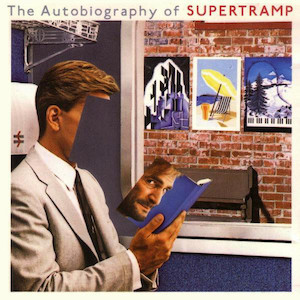
The Autobiography of Supertramp is the first greatest hits album by the English rock band Supertramp, released in 1986.

"The Logical Song" is a song by English rock group Supertramp that was released as the lead single from their album Breakfast in America in March 1979. It was written primarily by the band's Roger Hodgson, who based the lyrics on his experiences being sent away to boarding school for ten years. The song became Supertramp's biggest hit, rising to No. 7 in the United Kingdom and No. 6 on the US Billboard Hot 100 chart. In 2001, a cover version by the band Scooter returned the song to the top 10 in several European countries.

"Breakfast in America" is the title track from English rock band Supertramp's 1979 album of the same name. Credited to Rick Davies and Roger Hodgson, it was a top-ten hit in the UK and a live version of the song reached No. 62 on the Billboard Hot 100 in January 1981. The lyrics tell about a person, presumably British, who dreams of visiting the United States.

"Dreamer" is a hit single from British band Supertramp's 1974 album Crime of the Century. It peaked at number 13 on the UK Singles Chart in February 1975. In 1980, it appeared on the band's live album Paris. This live version was also released as a single and hit number 15 on the US charts, number 36 in the Dutch Top 40, and number one on the Canadian Singles Chart. When "Dreamer" had been released in 1974, its B-side "Bloody Well Right" was more popular in North America leading it to chart instead, at No. 35 in the US and No. 49 in Canada, with "Dreamer" only charting in Canada, that being at No. 75. "Dreamer" also appeared on Roger Hodgson's album, Classics Live, recorded on tour in 2010.

"Goodbye Stranger" is a song by the English rock band Supertramp; it was written by Rick Davies. The song first appeared on their sixth studio album, Breakfast in America (1979). The lyrics present an "optimistic view from a drifter."

"Give a Little Bit" is the opening song on Supertramp's 1977 album Even in the Quietest Moments... The song was released as a single that same year and became an international hit for the band, peaking at number 15 on the Billboard Pop Singles chart. It was a chart hit in the band's native UK, reaching number 29 on the UK Singles Chart. The single was re-released in 1992 to raise funds for the ITV Telethon Charity event, but failed to chart.

"It's Raining Again" is a song recorded by the English progressive rock band Supertramp and released as a single from their 1982 album …Famous Last Words… with credits given to Rick Davies and Roger Hodgson, although as indicated on the album sleeve, it is a Hodgson composition. The end of the song incorporates the old nursery rhyme "It's Raining, It's Pouring".

"My Kind of Lady" was the second single from Supertramp's 1982 album …Famous Last Words…. The song is a '50's-style mid-tempo love ballad; it peaked at #16 for USA Billboard Adult Contemporary and #31 for USA Billboard pop singles. The lead and backing vocals were all sung by Davies, who harmonizes with himself by switching between his natural voice and a falsetto vocal. The echo-treated and natural sounding voice was sung in Davies' baritone. The falsetto passages were double tracked and mixed with a phaser. Despite being released as a single, the track was not performed live.

It Was the Best of Times is the third live album by the English rock band Supertramp, released in April 1999. The album title makes use of the opening line from A Tale of Two Cities by Charles Dickens.

"Bloody Well Right" is a song by English rock band Supertramp from their 1974 album Crime of the Century. It appeared as the B-side of the single "Dreamer" in 1974. Listeners in the United States preferred it to the A-side, and "Bloody Well Right" became their breakthrough hit in the country, peaking at number 35 on the Billboard Hot 100.

"School" is a song co-written by Rick Davies and Roger Hodgson of British rock band Supertramp, and included in the band's third and breakthrough 1974 album, Crime of the Century, of which it was the opening track. It was later released as a single in 1983, backed with "Oh Darling", a track from their 1979 album Breakfast in America, and charted at number 27 in Netherlands in 1989. In 2020, the song peaked at number 1 as its highest radio airplay chart in Spain.
